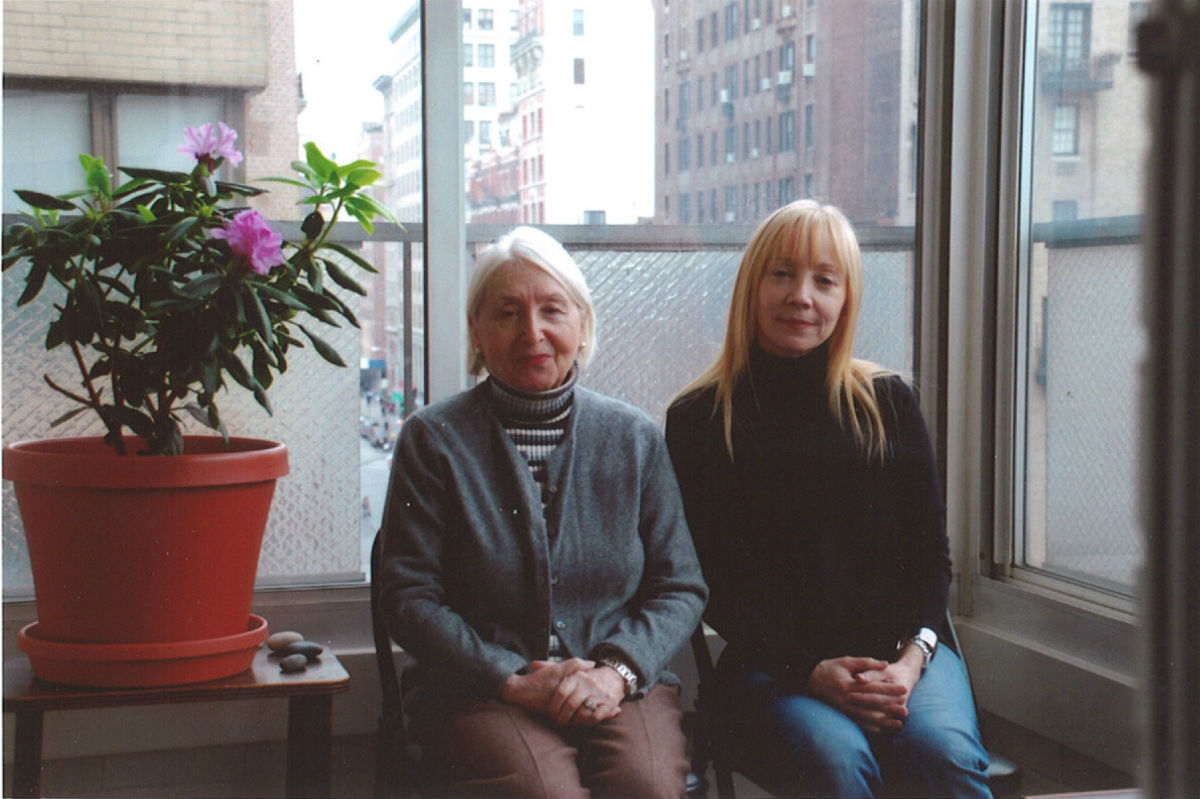In “Waltzing with the Enemy,” A Mother’s Story of Survival Inspired Her Daughter’s Search For Identity
An unflinching look at the devastation of the Holocaust
Deborah Anders
212-463-0400 x5178
deborah.anders@touro.edu

The struggle for survival and the search for identity are the compelling themes woven into a powerful true story “Waltzing With The Enemy: A Mother and Daughter Confront the Aftermath of the Holocaust,” by Helen Mitsios —a professor of languages and literature at the New York School of Career and Applied Studies, a division of Touro College— and her mother, Rasia Kliot. The book’s release this week on Kindle coincides with Kristallnacht (November 9 and 10), which commemorates the attacks against Jews that occurred throughout Nazi Germany and Austria and is considered one of the defining events leading up to the Holocaust.
Uniquely told through two separate narratives, this dual memoir begins with Rasia’s harrowing escape from Vilnius, Lithuania during WWII, and continues with her later life in Montreal, Phoenix, and New York City. With an unflinching look at the devastation of the Holocaust and the dangers she faced along the way, Rasia describes her years as a young woman living under Nazi occupation, at one point having to waltz with a Nazi military officer during a party.
“My life could have been erased in the blink of an eye,” Rasia writes. “Many times during the darkest years I happened to be one step ahead of disaster,” she writes.
Against all odds, Rasia survives by posing as a Catholic. When her daughter, Helen, grows up, Rasia gives her, what she believes, are the necessary tools to protect her from anti-Semitism, by enrolling her in a Catholic grade school. She forbids Helen from telling anyone she is Jewish, but behind closed doors, the family lives with Eastern European traditions and speaks Yiddish, while Rasia remains faithful to her Jewish heritage.In her preface, Professor Mitsios writes, “It was our secret….Like my mother, I had a dual identity.”
In a recent interview, Professor Mitsios explained that as she grew up, she was drawn more and more to Judaism, and reasoned, “My mother pretended to the world that she was a Christian, but, I thought, why should I?” The answer, and very much more, lies in her half of the memoir.
Asked about her inspiration for the book, Professor Mitsios replied, “My mother had always talked about her life, saying things like, ‘I was one of the lucky ones.’ I knew the outlines and mythology, but none of the details. I asked her if she would put together the pieces of her journal. So we sat together in front of the computer. I typed her words as she read them out loud to me.”
“Waltzing with the Enemy” is an unforgettable narrative that reveals both the burdens and privileges children of survivors inherit from their parents. Professor Mitsios writes with insight on this topic. “I had not known a person could become a captive of someone else’s past. In a way, I am an embodiment of my mother’s wartime experience, even today,” she says.
Helen Mitsios is an award winning poet, and the editor of “Beneath the Ice: An Anthology of Contemporary Icelandic Poetry,” and has contributed to magazines and newspapers including The Washington Post Book World, The Philadelphia Inquirer, and The San Francisco Chronicle. She is also the editor of “Digital Geishas and Talking Frogs: The Best 21st Century Short Stories from Japan,” and “New Japanese Voices: The Best Contemporary Fiction from Japan” −twice listed as a New York Times Book Review Editors’ Choice.
In addition to Kindle, “Waltzing with the Enemy” is available on Amazon.com and UrimPublications.com.

